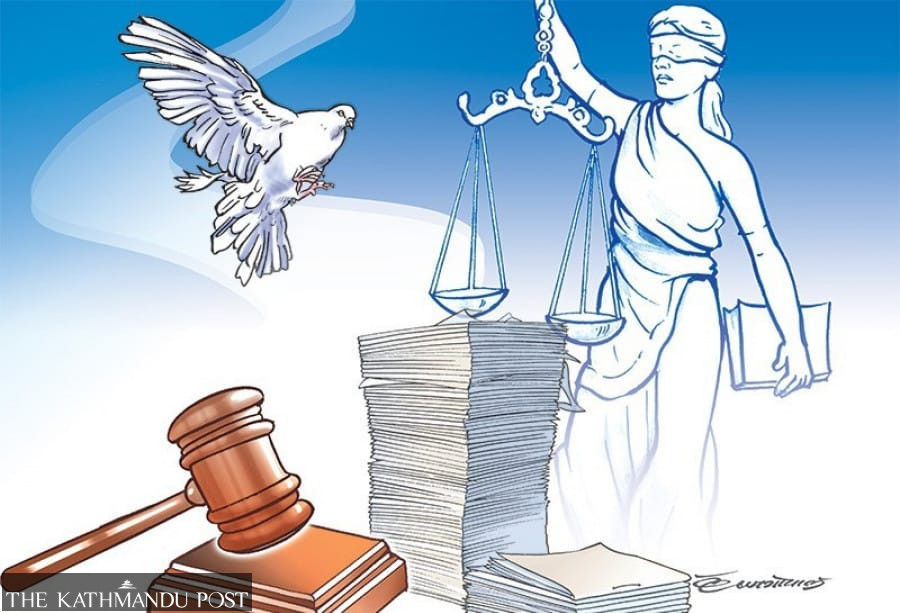National
Victims decry TJ office bearers selection panel without amending law
Rights activists say government trod the wrong path by forming the committee before revising the transitional justice law.
Binod Ghimire
Ignoring the concerns of the victims and human rights activists, the government on Friday formed a committee to select candidates for the chairpersons and members of the two transitional justice commissions before an amendment to the Enforced Disappearance Enquiry, Truth and Reconciliation Commission Act.
A Cabinet meeting constituted a five-member committee led by Om Prakash Mishra, a former chief justice, to nominate the candidates for both the Truth and Reconciliation Commission, and the Commission of Investigation on Enforced Disappeared Persons. The committee was formed as per the Supreme Court’s March 12 order, which had instructed the government to start selecting office bearers in the two transitional justice commissions within a month.
The court had asked the government to constitute task forces within the commissions to carry out preliminary investigations into the victims’ complaints until the office bearers are appointed.
Following the court’s order, the victims and the human rights defenders had demanded the government and the parties endorse the bill to amend the Act by the top court’s deadline before starting the selection process. However, the amendment bill couldn’t be endorsed within the deadline, prompting the government to form the committee based on existing law.
“No capable person with high integrity will agree to join the commissions without the amendment. Appointing the chairpersons and members for the sake of the appointment is meaningless,” said Suman Adhikari, a former chair of the Conflict Victims’ Common Platform. “A month was ample time for the bill to be endorsed by Parliament but no serious effort was made to this effect.”
A full bench of the Supreme Court in 2015 had directed the government to amend the Act inducting the provisions that bar amnesty in serious violations of human rights.
There hasn’t been any discussion on the bill that is under consideration in the Law, Justice and Human Rights Committee of Parliament ever since a change in the ruling alliance on March 4. The Nepali Congress, which had been saying the bill must be endorsed through a vote while it was still in the government, has changed its stance after being pushed to the opposition bench.
Raju Chapagain, coordinator of the Accountability Watch Committee, an association of human rights defenders, said the government was taking a wrong path by forming the selection committee without amending the Act. “The court’s deadline was deliberately missed without making serious effort in endorsing the bill,” he said. “The government’s move will not give a solution to the existing problem.”
The two commissions have been inactive since July 2022 after the government decided to extend their terms without retaining their chairmen and members. The government had claimed the bill to amend the existing transitional justice law would be endorsed by October 2022 and the appointment would be made based on the revised Act.
However, close to two years later, nothing has been achieved as the parties remain divided on different provisions in the bill. As the winter session of Parliament is being prorogued on Sunday, the amendment process will be on hold at least until the next session is summoned.
While the truth commission has received 63,718 complaints, the disappearances commission is sitting on around 2,400 cases.
The victims say they have no expectation from a Mishra-led committee, which had previously failed them.
The government in 2019 had formed a similar committee under Mishra in order to recommend the heads and members at the two commissions. Amid reservations from different quarters, it recommended the Ganesh Datta Bhatta-led team for the truth commission and the Yubraj Subedi-led team for the disappearances commission. It had taken 10 months to make the recommendations.
However, both the committees failed to perform despite being in the office for more than two years, prompting then Sher Bahadur Deuba-led government not to extend their tenures.
“We have seen what types of people it selected last time. I don’t understand why a tested and failed person has again been picked to make the recommendations,” said Adhikari.
Stakeholders have also demanded that they be consulted before taking any decisions on the transitional justice process. However, the Mishra-led panel was formed without informing victims and human rights defenders.




 9.83°C Kathmandu
9.83°C Kathmandu














